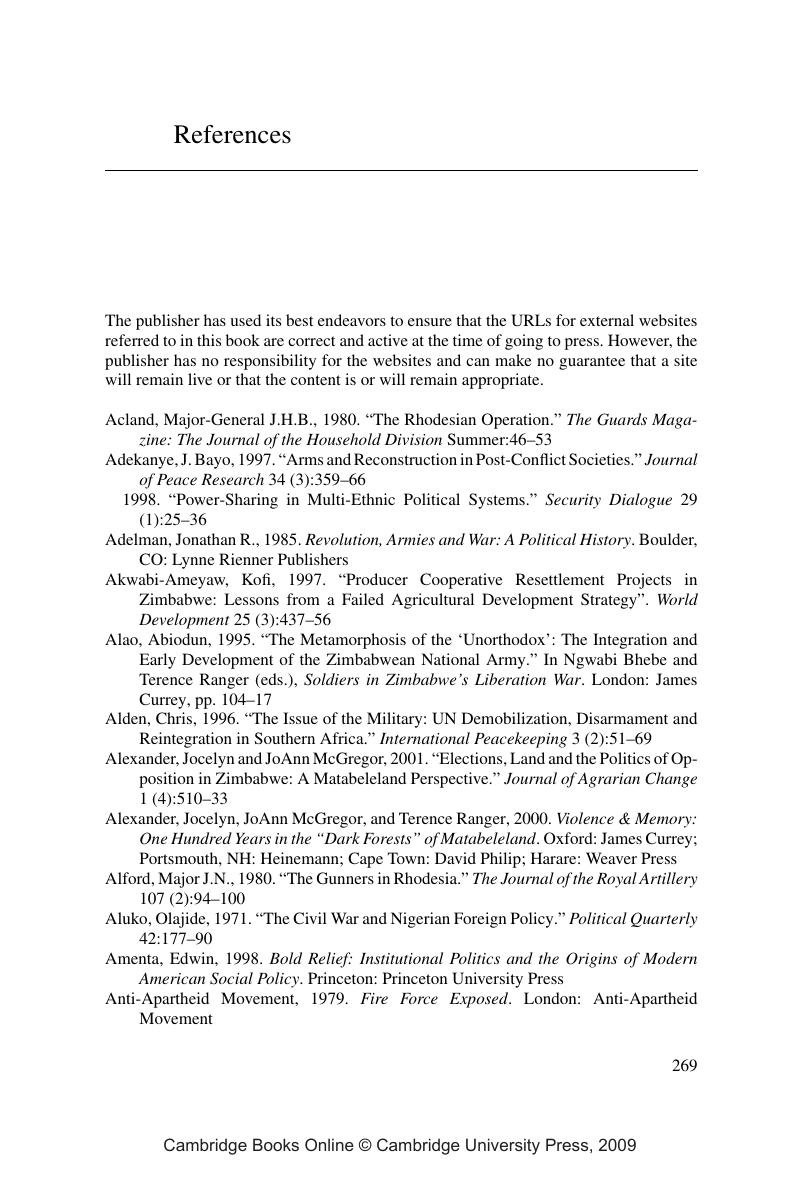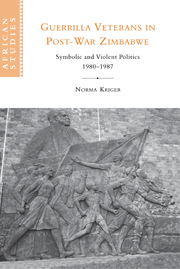Book contents
- Frontmatter
- Contents
- List of tables
- Acknowledgments
- Chronology (1889–1980)
- List of abbreviations
- Map
- 1 Introduction
- 2 The peace settlement
- 3 The assembly phase
- 4 Military integration
- 5 Employment programs for the demobilized
- 6 Conclusion
- Epilogue: the past in the present
- Appendix: The ruling party's attempts to withdraw ex-combatants' special status and ex-combatants' responses, 1988–1997
- Notes
- References
- List of pseudonyms used in the text
- Index
- Cambridge Cultural Social Studies
- References
- Frontmatter
- Contents
- List of tables
- Acknowledgments
- Chronology (1889–1980)
- List of abbreviations
- Map
- 1 Introduction
- 2 The peace settlement
- 3 The assembly phase
- 4 Military integration
- 5 Employment programs for the demobilized
- 6 Conclusion
- Epilogue: the past in the present
- Appendix: The ruling party's attempts to withdraw ex-combatants' special status and ex-combatants' responses, 1988–1997
- Notes
- References
- List of pseudonyms used in the text
- Index
- Cambridge Cultural Social Studies
- References
Summary

- Type
- Chapter
- Information
- Guerrilla Veterans in Post-war ZimbabweSymbolic and Violent Politics, 1980–1987, pp. 269 - 283Publisher: Cambridge University PressPrint publication year: 2003



